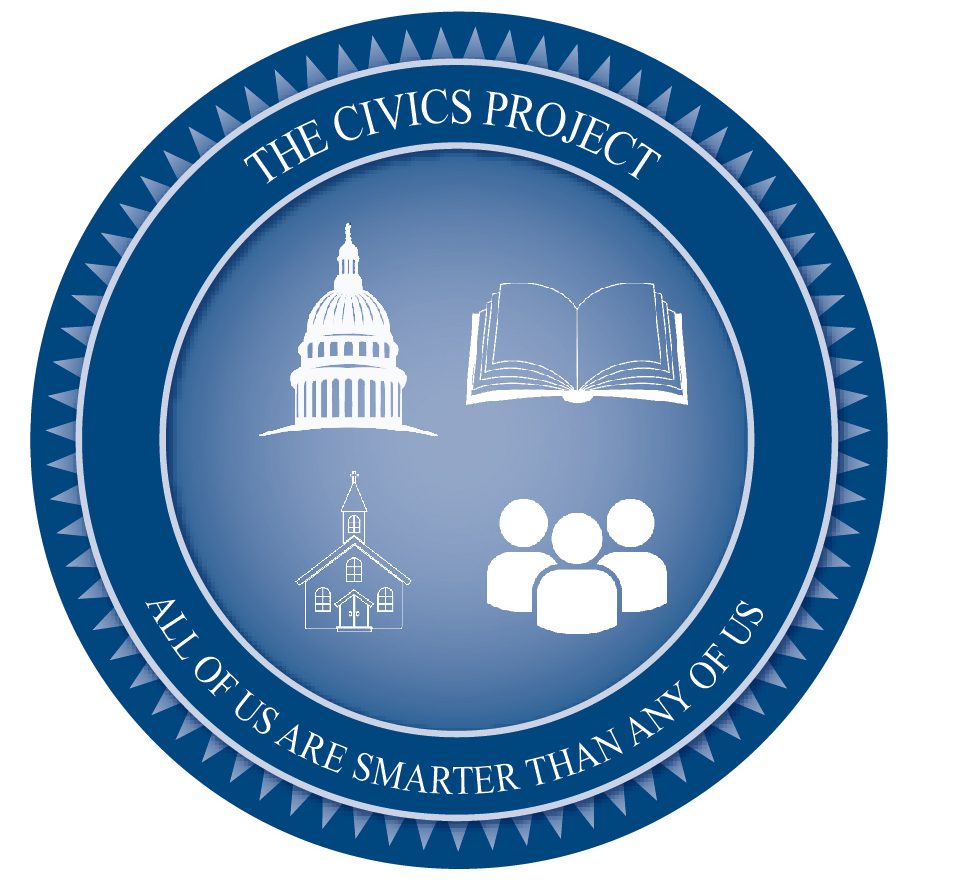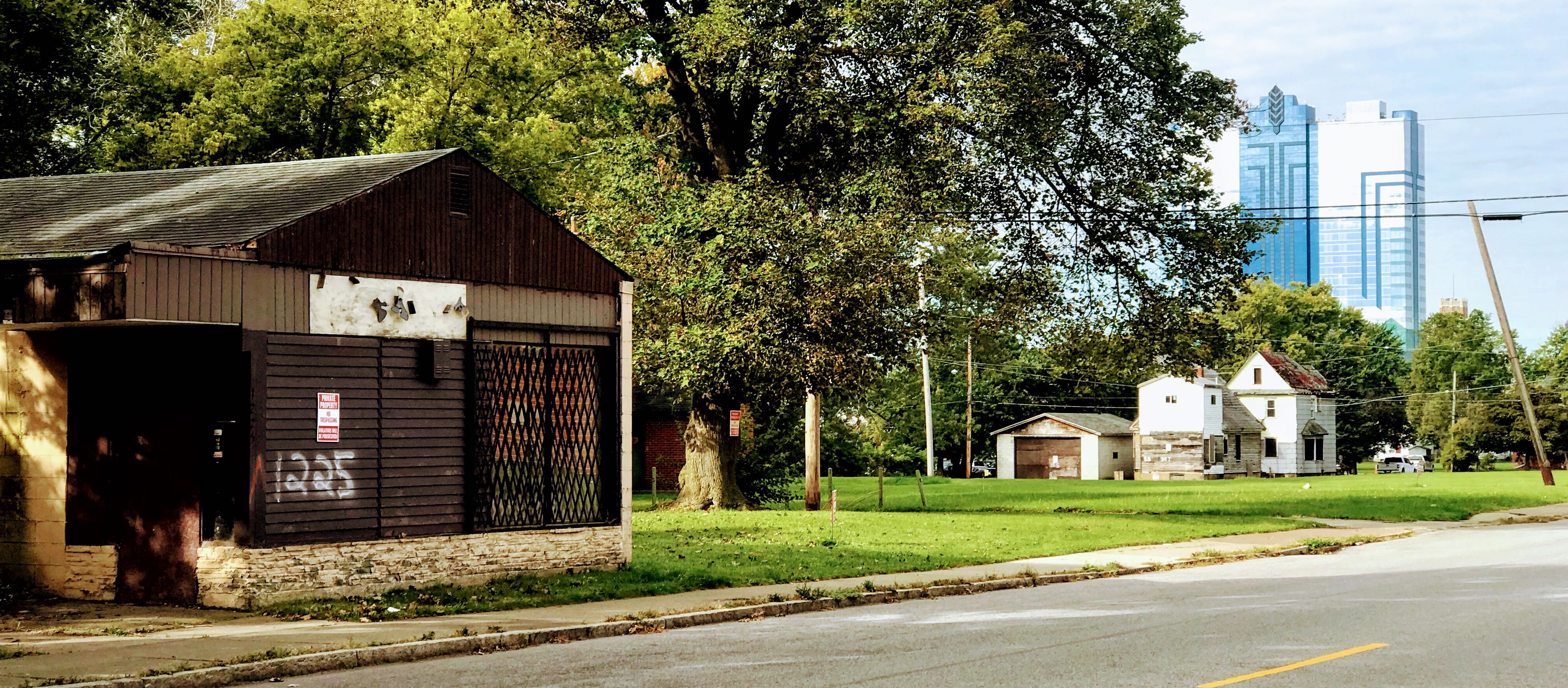The important thing about civics is that it is all-encompassing. Every municipality has varied components. Service some and ignore others like a giant chemistry experiment. Actions have consequences. These are the components of a civics discussion.
“I was moving some things around in my home the other day and I moved a box, and on the box was written ‘no one is coming to save us.’ Why that box had those words written on it and why it came into my sight at this exact time I have no idea. But it perfectly summed up how I feel about my city right now,” said Brian Archie, Sr.
We have to help ourselves. By helping ourselves we help our neighbors.
I say give me some of that thinking every day of the week
Brian Archie, Sr. reached out to me because he’s pursuing the same questions we’re raising in these articles through a group he belongs to called Create a Healthier Niagara Falls Collaborative.
“We need to build capacity. Get people out to vote,” Archie continued, “Get people to know what they’re voting for. Learn what’s going on with their neighbors. It’s possible to turn things around, but hope is dwindling right now. It’s on a super-fine thread. We feel that small changes, little wins, help increase residents confidence in themselves and their ability to interact with their local government. ”
I liked that phrase, build capacity. I wondered if these conversations were being held. What ideas are driving capacity at the community level.
Our group’s goal is community outreach. It’s the internet age and yet people feel more isolated then ever before. People need to know their neighbors. Their health and their diet are important and often neglected. So is their contact with each other and therefore their community awareness. It’s all connected. Where your stories about civics and our energies at community outreach intersect may be voting. People know smoking is bad for their health. They need to know voting – or not voting – can be important for community health.
Psychiatrists tell us we end up with what we expect. Our current dominant thought is what drives our actions. So, what does Mr. Archie expect this city to become?
“I think if everybody had access to the same resources it would give them the opportunity to engage and make self-improvement,” says Archie. Then, if people saw some growth and opportunity in small business development in their neighborhood, they might start to feel that they have hope. That they could either work at these small businesses or start one themselves. That small change in city appearance might make a large change in mental fitness.”
“We’ve met with some elected officials over the course of our outreach. We value their attendance at any of our meetings or events. We tend to get a lot of listening, a lot of ‘I feel your pain’ type reaction. We mention problems to them because they’re real and we don’t always have solutions. We need public officials suggesting ideas too. We need to erase party lines or personal agendas. I personally feel most public officials may want to do that. They’re just not conditioned to that way of thinking right now.”
What about big ideas. In a perfect world, what could the city become?
“Most people want their garbage picked up. Street sweepers to clean their street. Older people want access to health care for themselves, and access to jobs for their kids or grandkids. Good or bad, people aren’t dreaming big right now,” says Archie of the current situation.
“They feel neglected. As an example, I’ve heard people say that they feel Canadians are more welcome in Niagara Falls than Niagara Falls residents. Maybe it’s because people think Canadians spend money here, but residents spend money and invest their lives here. Then people read that we aren’t charging Canadians tolls anymore. Conspiracy theory or not, people don’t think that’s a technology problem, they believe it’s a policy choice. So if we give away toll revenue in the hope of sales tax revenue, is that a wash? I’m not saying that’s accurate thinking or logical, but I am saying that’s how people see it from their porch or kitchen table. And if you’re asking me to sum that up in one word it would be neglect.”
I wondered if Mr. Archie had any ideas about why Niagara Falls, more than most communities, The Falls prey to more than it’s fair share of business hucksters.
“Because the city doesn’t just have residents desperate for signs of success, we have folks in our government that are also desperate for something. They are fearful for their jobs. They are fearful for their space, and they know they have to produce. So if I’m coming to you and I’m saying I’ve got a hundred million dollar project, and it’s gonna be great, and I did it in Kansas about two years ago and it’s just amazing etc the public officials offer tax breaks and other free things. They can almost feel the success that might come if they can announce construction jobs are coming,” says Archie,
The reality is construction jobs are not permanent, are transient, and what Niagara Falls isn’t some quick flash-in-the-pan ideas for quick fixes, it needs long term, sustainable solutions for next year and every year after, for your and my lifetimes and that of our children and their children.
To learn about more of what Mr. Archie does, visit www.healthierniagarafalls.org and see what others are doing to specifically connect people in the Falls to healthier living and a greater understanding what community means. Send an email telling them, be part of their community as their community is your community. You may not be able to get out and meet with them, but an encouraging word about their efforts might make a difference.
THE CIVICS TAKAWAY
What I care about and what you find important may sound different, but we have a lot in common It’s important work to find threads of common interests and knit them together. All of us are smarter than any of us – especially when we listen to others.

